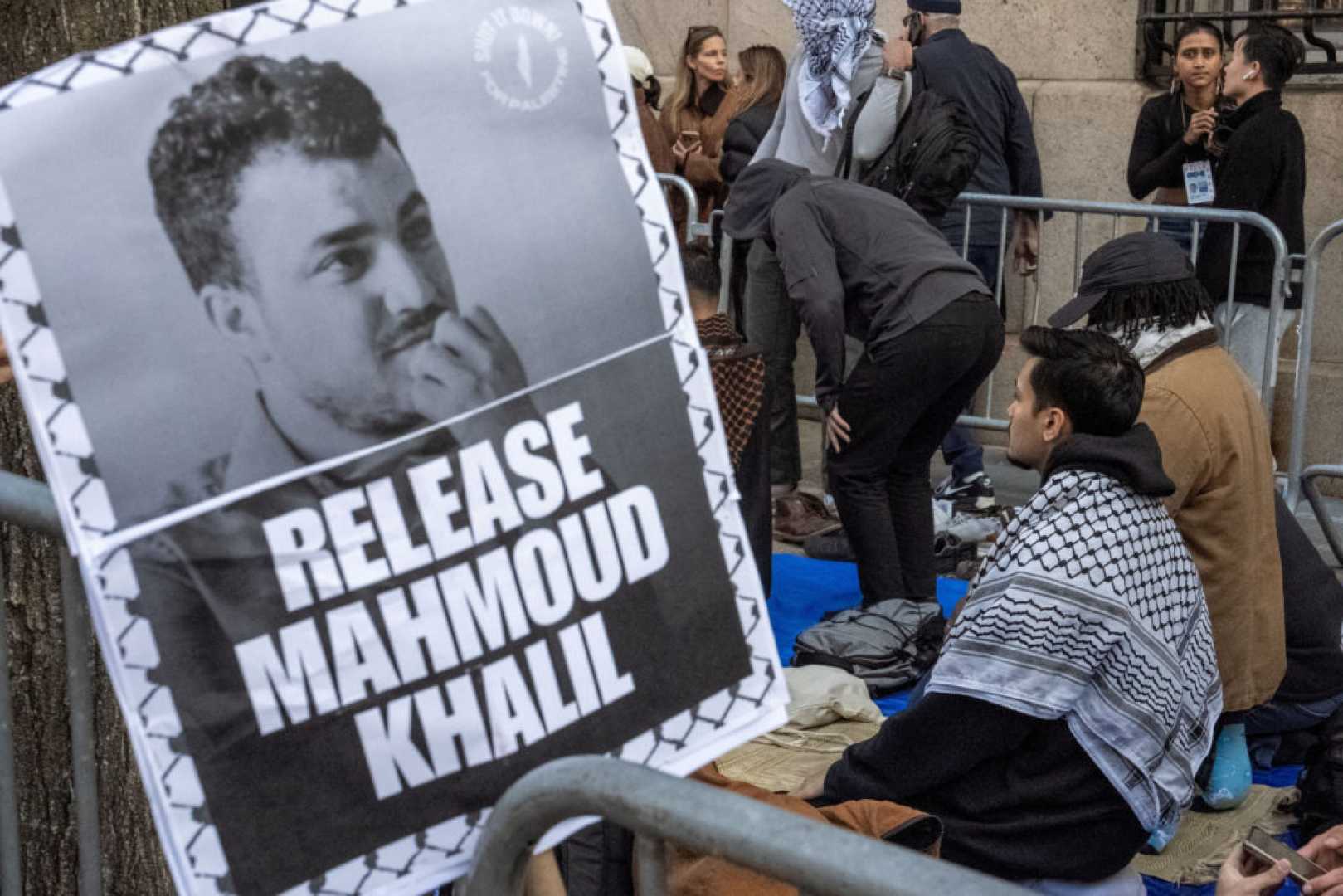News
Immigration Judge Schedules Critical Hearing for Detained Columbia Activist

Jena, Louisiana — An immigration judge set a pivotal hearing for Mahmoud Khalil, a detained Columbia University activist, amid his legal battle against deportation. The judge granted attorneys from the Department of Homeland Security (DHS) just over 24 hours to present evidence supporting the allegations against Khalil, a legal permanent resident who was arrested by U.S. Immigration and Customs Enforcement (ICE) on March 8.
Khalil, a prominent figure in last spring’s protests at Columbia, was taken from his university housing in New York and transferred to a detention center in Louisiana. After a hearing on Tuesday, Judge Jamee Comans scheduled another hearing for Friday, allowing Khalil’s legal team time to review evidence before making a determination on his removability.
“The government has not produced a single shred of evidence to support its claims,” said Marc Van Der Hout, Khalil’s attorney. “This rush to judgment could completely deprive him of his due process rights.”
During the virtual hearing on Tuesday, tensions mounted as the judge noted that nearly 600 individuals were waiting to join, a situation described as highly unusual. Van Der Hout called for future hearings to be public, but the judge indicated she might hold them in person moving forward.
Khalil, appearing in a blue jumpsuit, only spoke briefly during the hearing. He requested that his wife, Noor Abdalla, be allowed to join the call, highlighting the emotional toll as she nears her due date. Van Der Hout emphasized the importance of Khalil’s presence for his family, reiterating their concerns over his detention circumstances.
The hearing examined various allegations, including claims linking Khalil to national security threats due to his past activism on campus. He denied all charges, which ranged from immigration violations to accusations tied to his political activities related to the Israel-Palestine conflict.
“We have not received any documentation from DHS to substantiate their claims,” Van Der Hout stated. Despite this, Judge Comans ordered Khalil to plead to over a dozen allegations during the session.
The urgency of the judge’s orders underscored Khalil’s prolonged detention, sparking concern from supporters and advocates. Public interest in the case reflects broader debates about immigration policy and civil rights, especially relating to activists.
After the hearing, Khalil expressed frustration with the judicial proceedings, noting the lack of due process in his case. He called for attention to other migration cases within the Jena facility, asking, “Why should anyone face such treatment?”
As the hearing adjourned, Khalil turned to acknowledge his supporters, signing a peace symbol as they exited the courtroom.
Khalil’s situation is emblematic of the complexities surrounding immigration enforcement under the Trump administration, particularly regarding how dissent and activism are handled legally.












